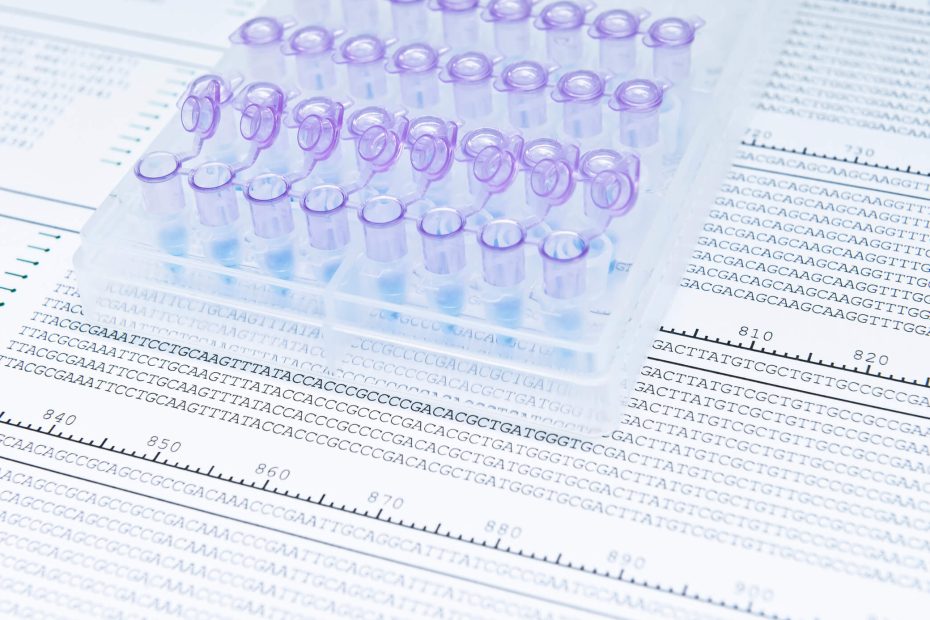The number of studies regarding how our genes work has been increasing exponentially since the Human Genome Project started more than 30 years ago. Researchers know that our DNA is more than just protein codes, and we also have important sections of our DNA that are just dedicated to regulating gene expression [1]. On the other hand, the decrease in the prices of sequencing technology has opened a door for companies that ask you for a saliva sample and, by paying a relatively small price, let you know some of the genetic markers present in your DNA. In some cases, these companies offer you the possibility of knowing which diseases you are susceptible to based on your genomic sequence.
How can they know this? The fusion of genetics, statistics and bioinformatics gave us something known as genome-wide association studies (GWAS) [2]. As the name states, these studies are based on the association of the genomic sequence of a population and the development of a disease, or a trait associated with a disease. The changes in the genomic sequence are mostly described as changes in one nucleotide, and they are known as single nucleotide polymorphisms (SNPs). SNPs are introduced into our DNA when it is being copied inside our cells, and these sequence changes are shared between populations. This type of duplication error is normal to some degree in cells, and it allows evolution to occur, as it is one of the mechanisms involved in genetic change and variation in populations. However, sometimes these changes can modify gene expression or protein function and, as a result, promote the development of a disease. For example, GWAS have associated a change in one nucleotide within the human genome with an increase in glucose in blood and the development of diabetes mellitus. It is known that this SNP (identified as rs3842753) is affecting the sequence of two genes: the insulin gene and the insulin-like growth factor (INS-IGF2) [3]. In the original version of this sequence (adenine), the DNA sequence of these genes and their proteins are expressed and work as expected. However, when the variant versions are present (guanine/thymine), a change in the RNA of each gene is produced. It is still not clear how these changes may affect the function of both genes. Some studies suggest that the different variants of this SNP modify the production of insulin, and this change facilitates the development of type 1 diabetes [4]. However, statistics and bioinformatic analysis have linked the presence of this variant with other traits mentioned earlier [3].
The association of these sequence variants and disease has become a priority in a world where metabolic diseases are rising and becoming an epidemic, and GWAS are the tools that researchers are using to identify how these sicknesses develop and how we can fight them. By identifying and understanding how a gene variant can induce or promote a disease, treatments like CRISPR; gene and RNA therapy; and even diet management, can be used to control and decrease the effects of metabolic diseases in the human population.
References:
- [1] L. Statello, C.-J. Guo, L.-L. Chen, and M. Huarte, “Gene regulation by long non-coding RNAs and its biological functions,” Nat Rev Mol Cell Biol, vol. 22, no. 2, pp. 96–118, Feb. 2021, doi: 10.1038/s41580-020-00315-9.
- [2] W. S. Bush and J. H. Moore, “Chapter 11: Genome-Wide Association Studies,” PLoS Comput Biol, vol. 8, no. 12, p. e1002822, Dec. 2012, doi: 10.1371/journal.pcbi.1002822.
- [3] J. Chen et al., “The trans-ancestral genomic architecture of glycemic traits,” Nat Genet, vol. 53, no. 6, pp. 840–860, Jun. 2021, doi: 10.1038/s41588-021-00852-9.
- [4] S. Wang, S. Flibotte, J. Camunas-Soler, P. E. MacDonald, and J. D. Johnson, “A New Hypothesis for Type 1 Diabetes Risk: The At-Risk Allele at rs3842753 Associates With Increased Beta-Cell INS Messenger RNA in a Meta-Analysis of Single-Cell RNA-Sequencing Data,” Can J Diabetes, vol. 45, no. 8, pp. 775-784.e2, Dec. 2021, doi: 10.1016/j.jcjd.2021.03.007.
Related Content
Want to read more from the Johns Hopkins School of Medicine? Subscribe to the Biomedical Odyssey blog and receive new posts directly in your inbox.
